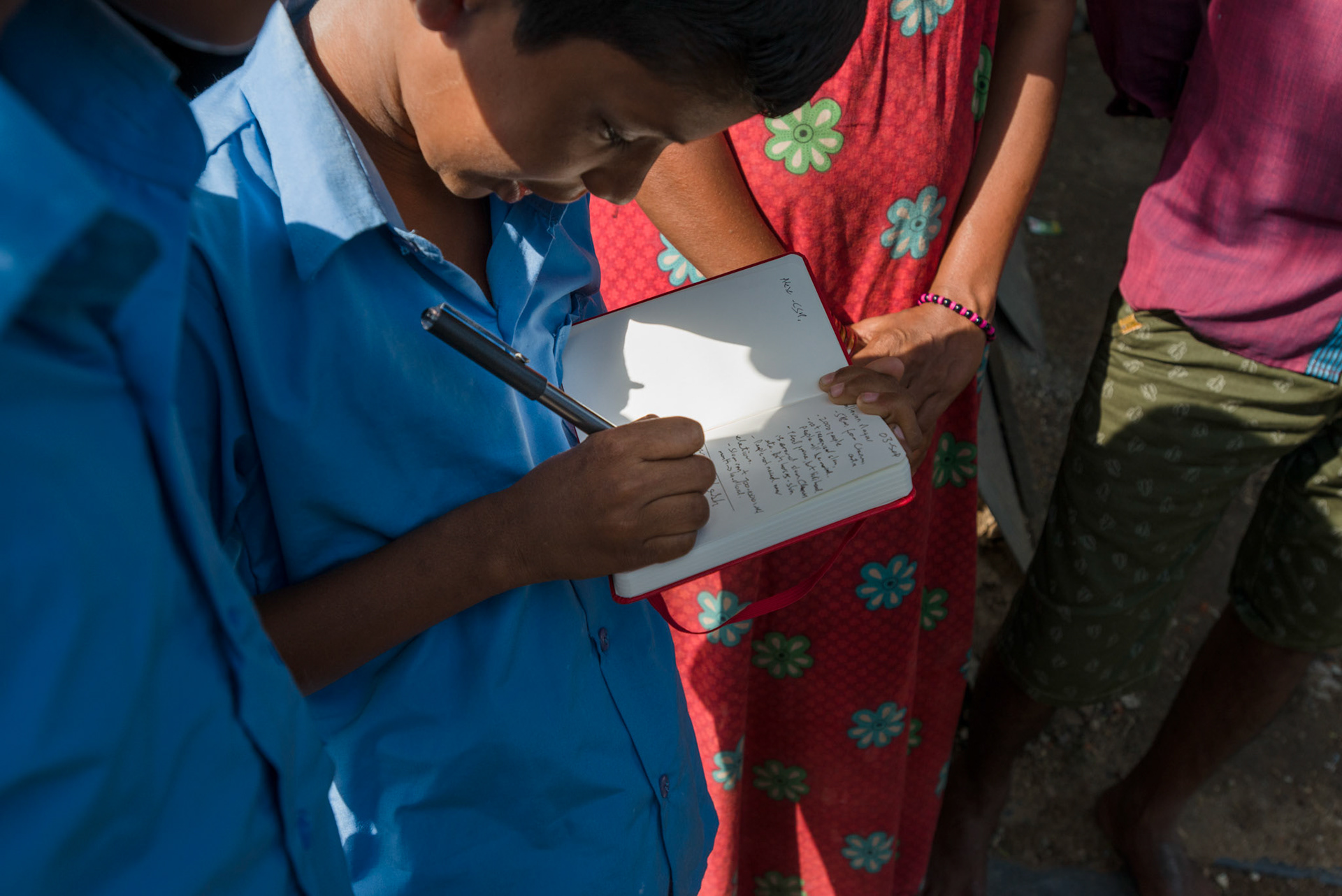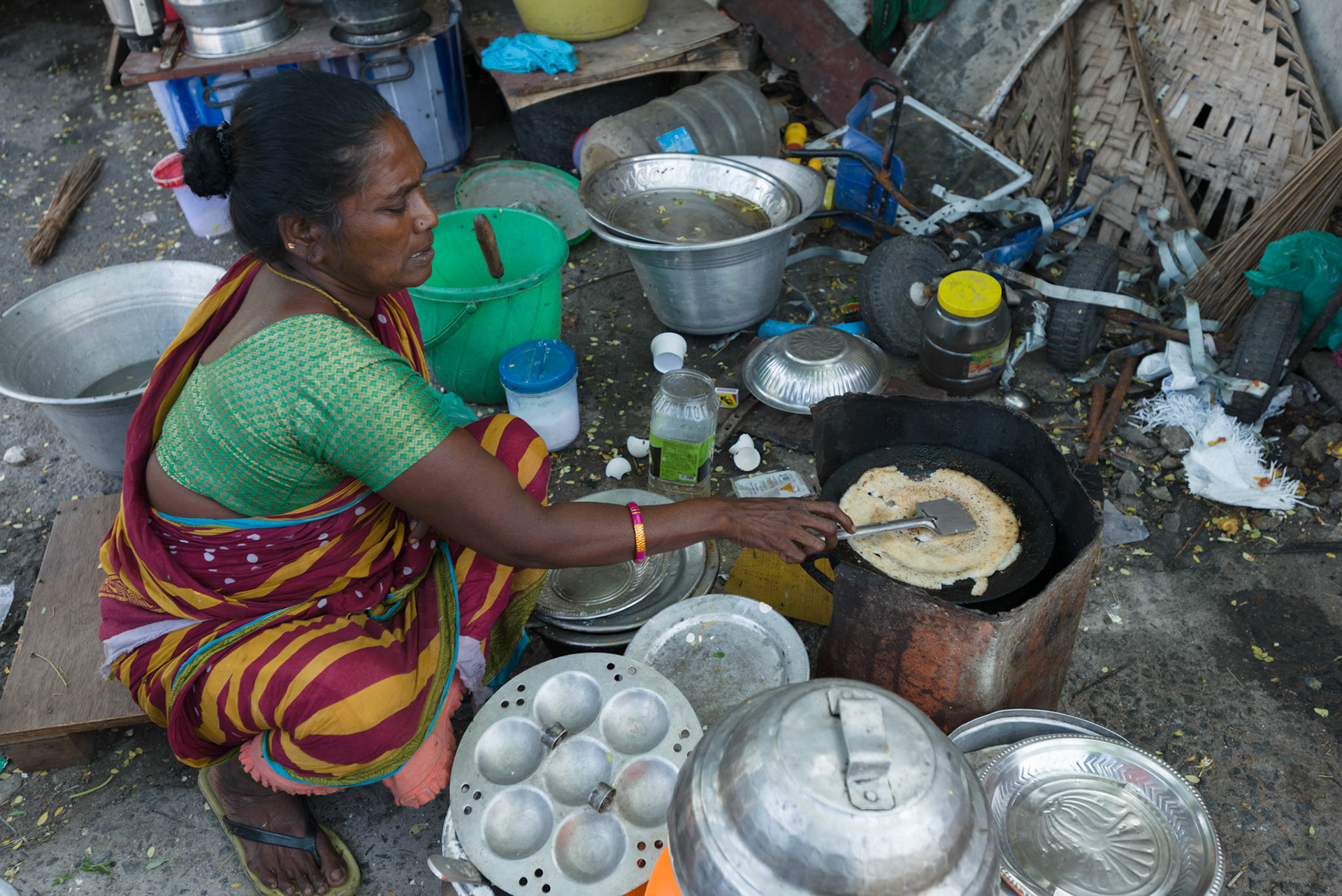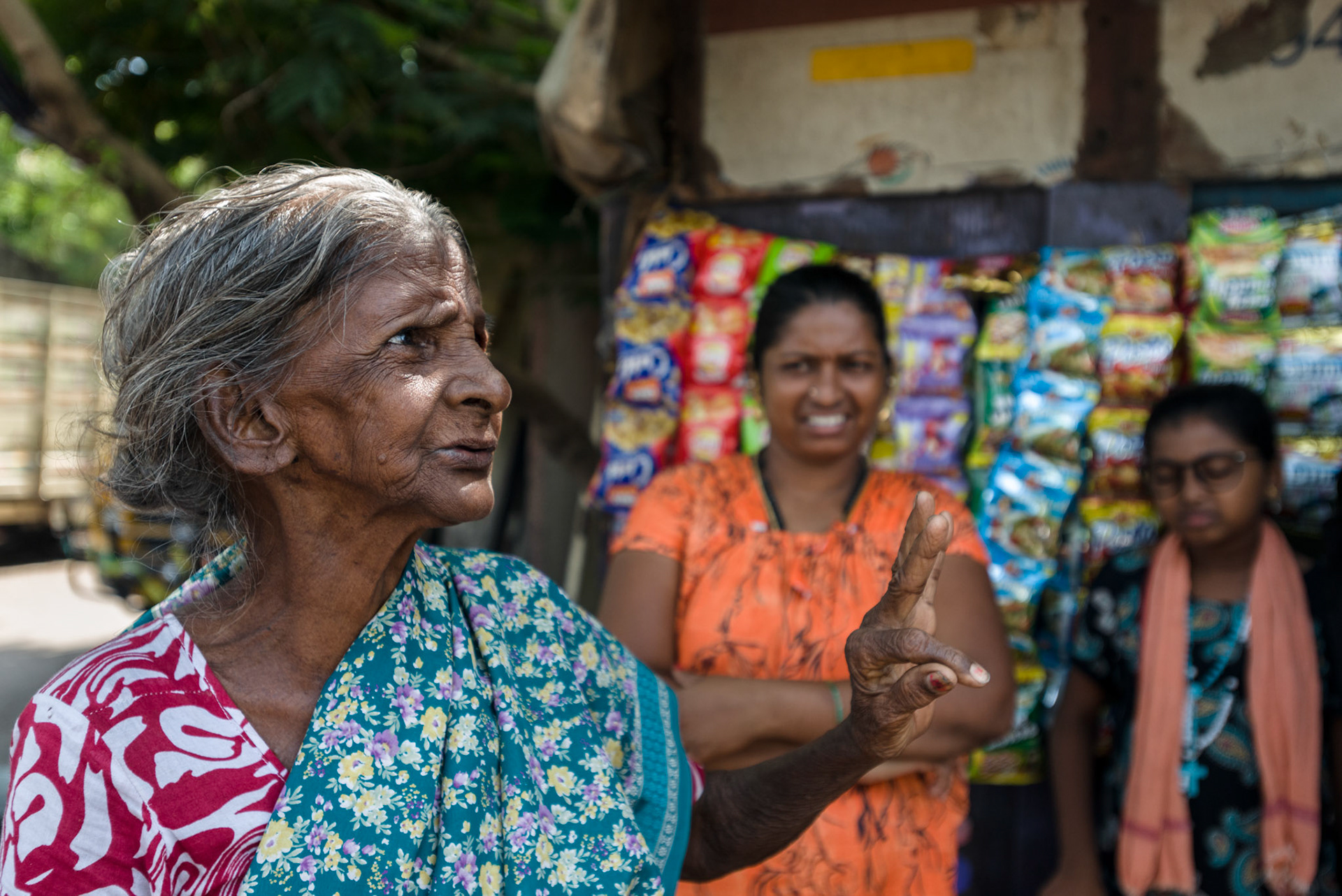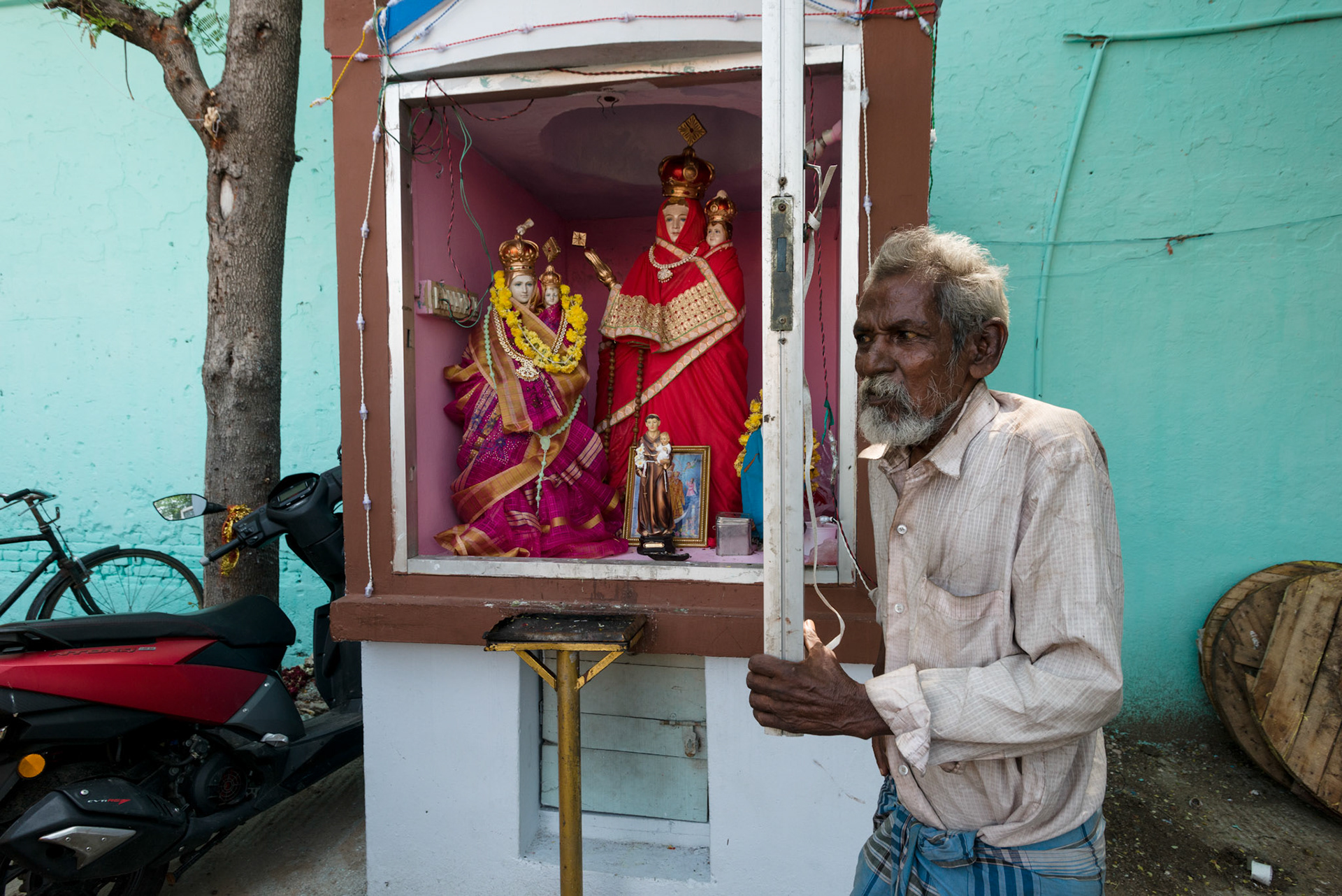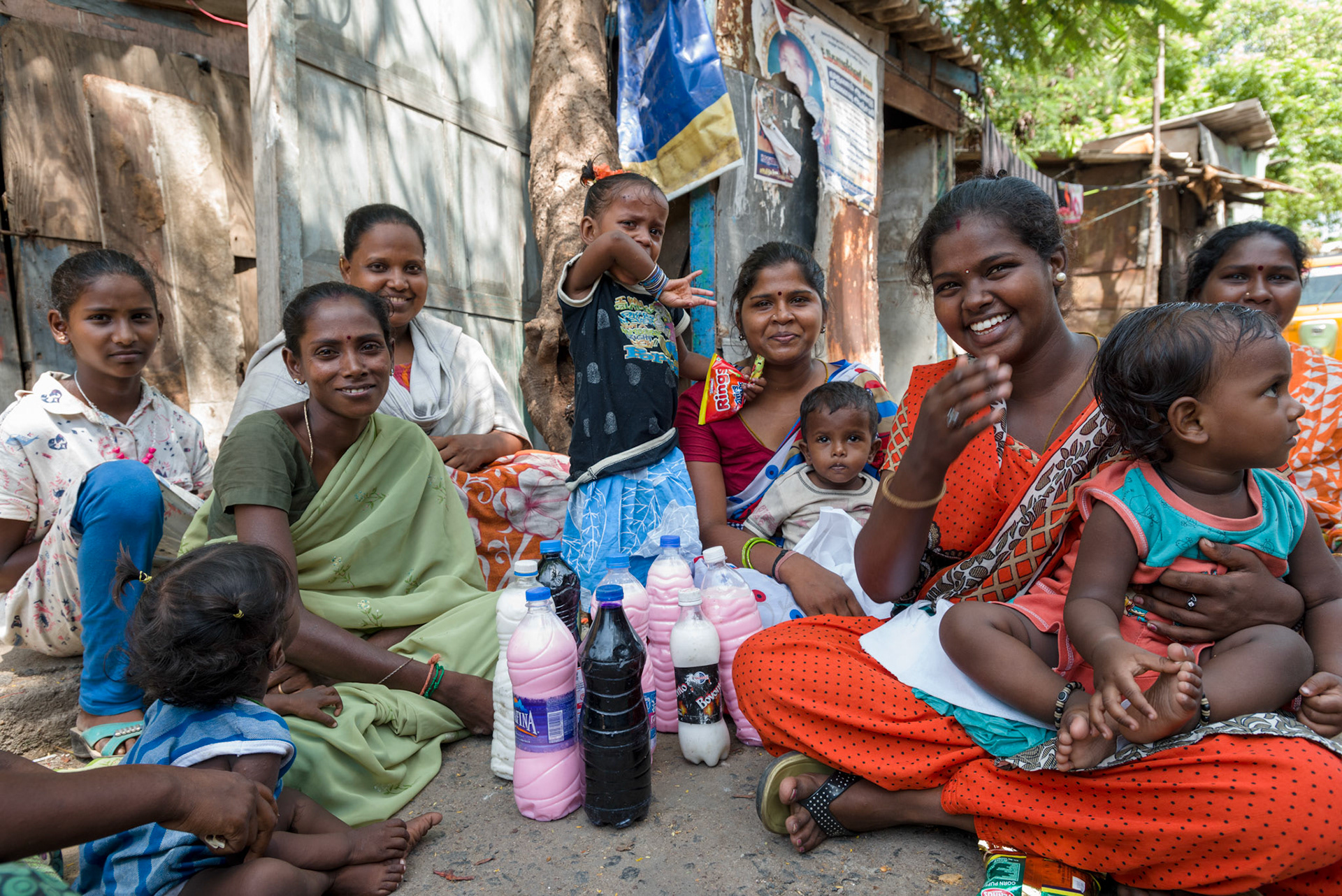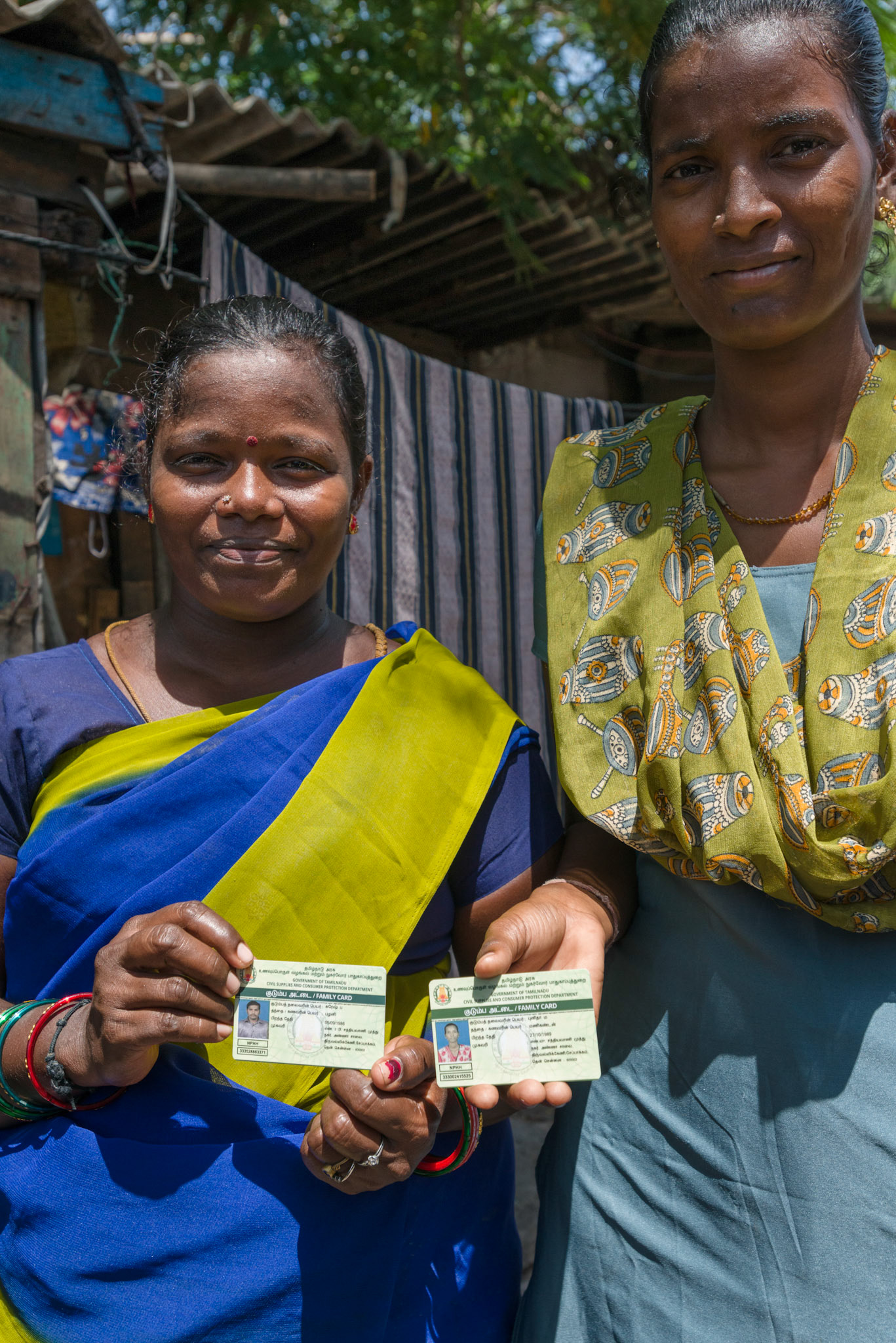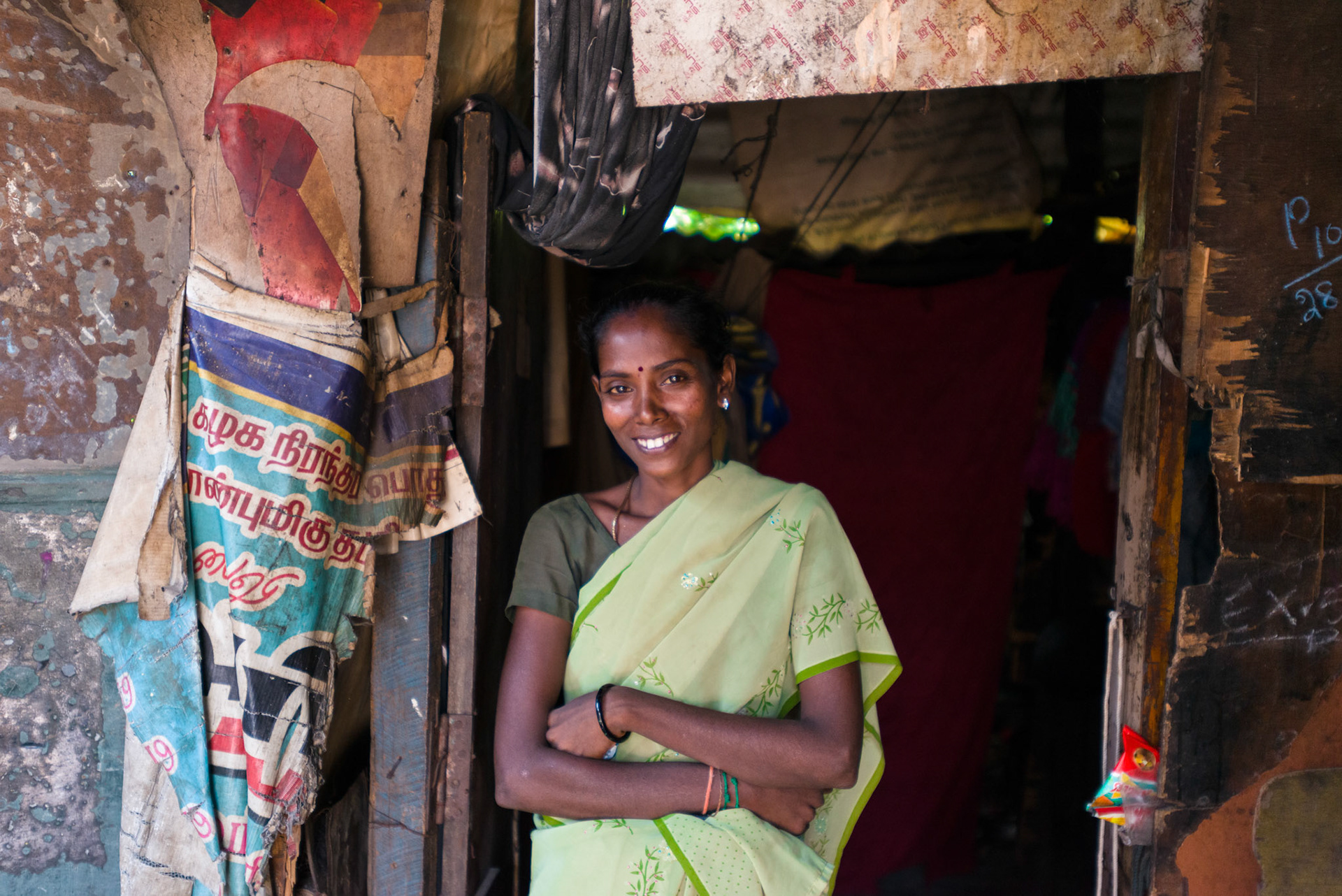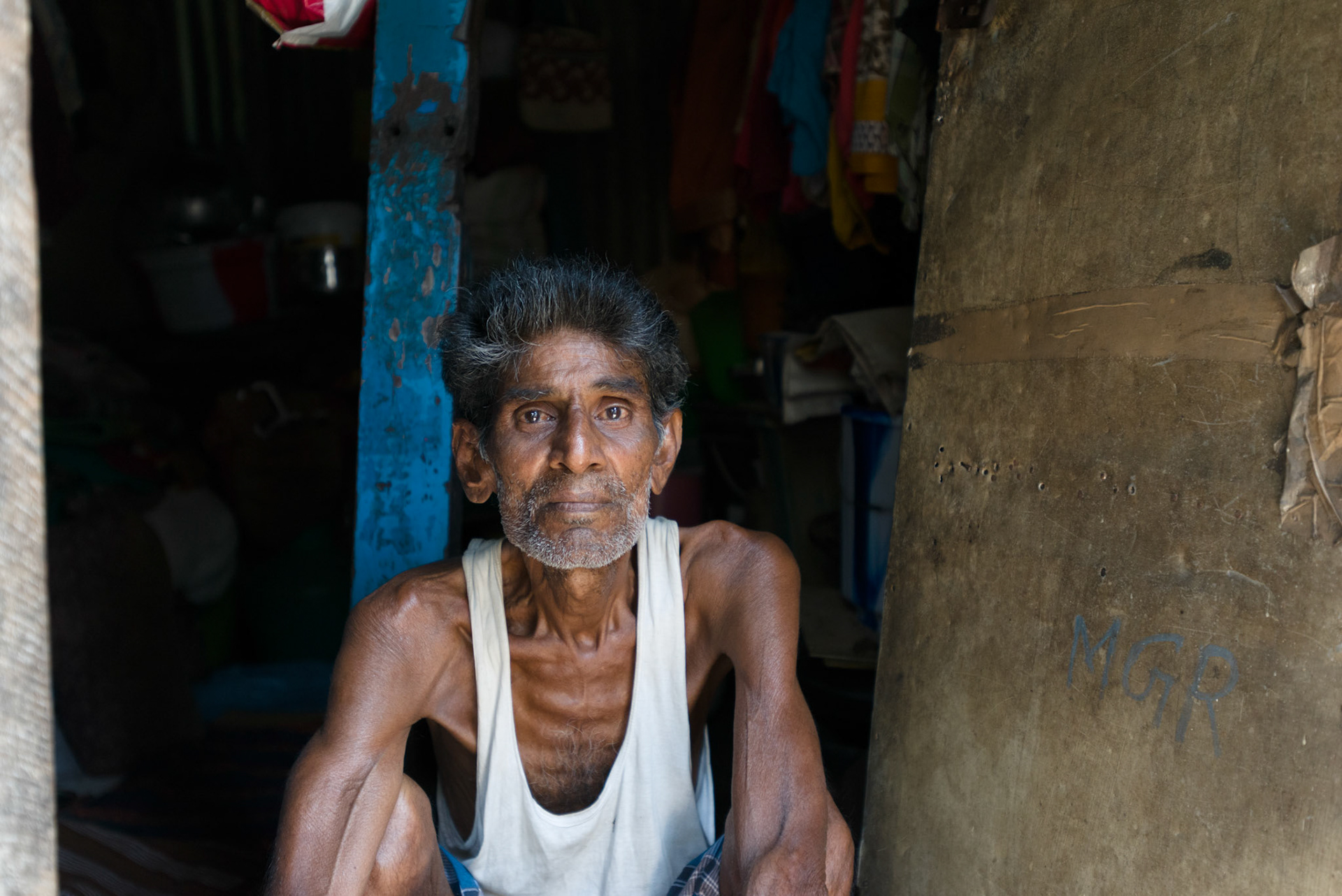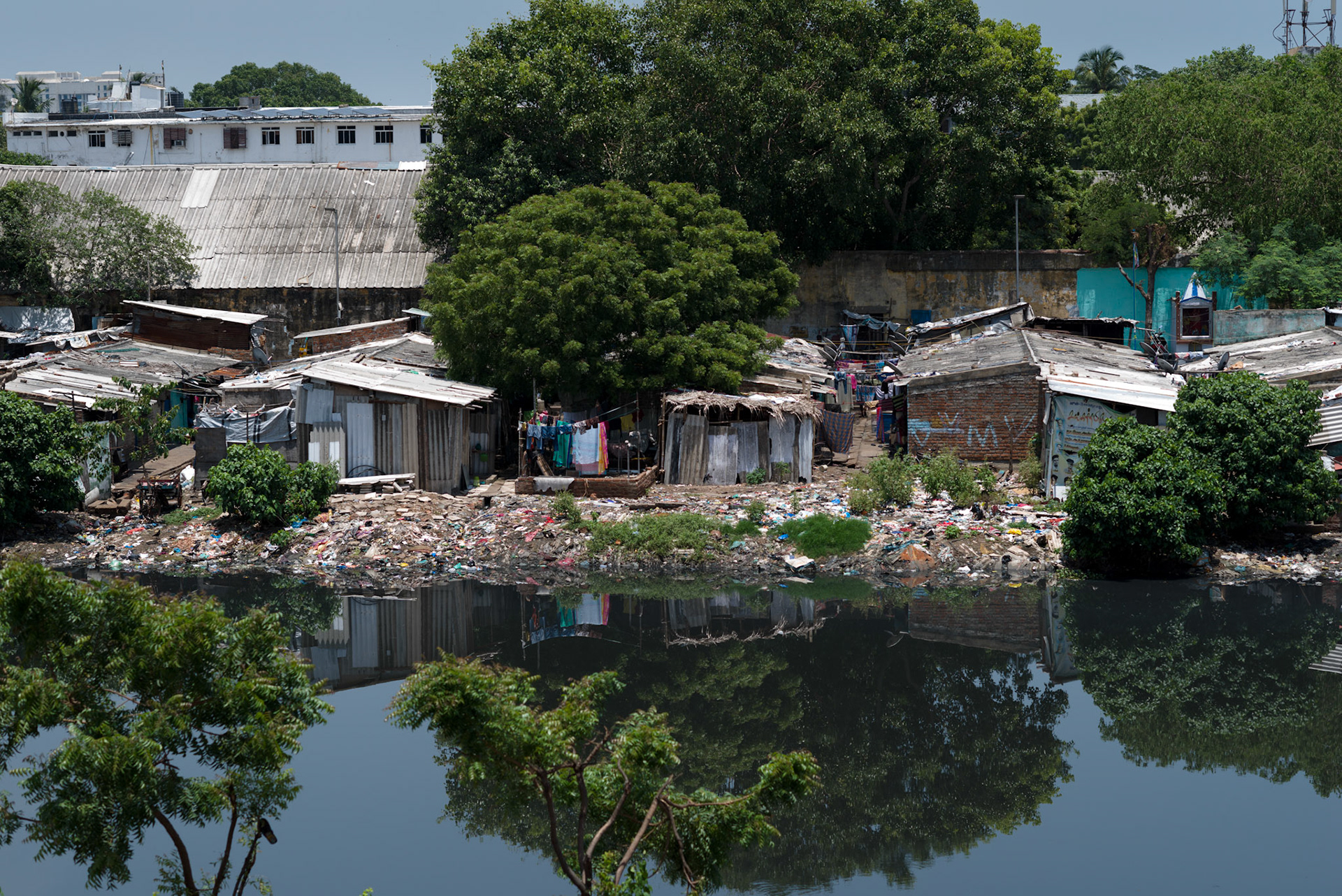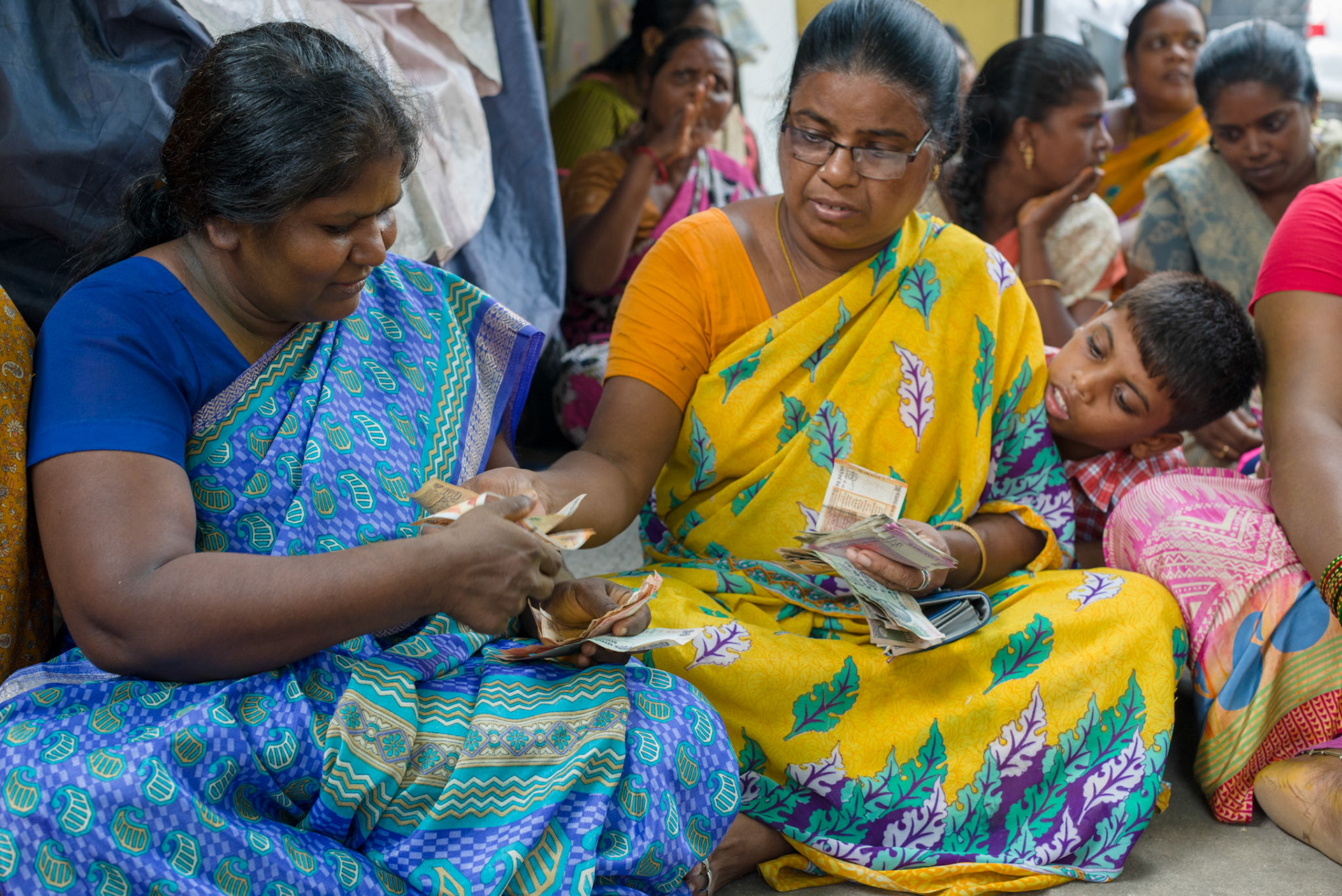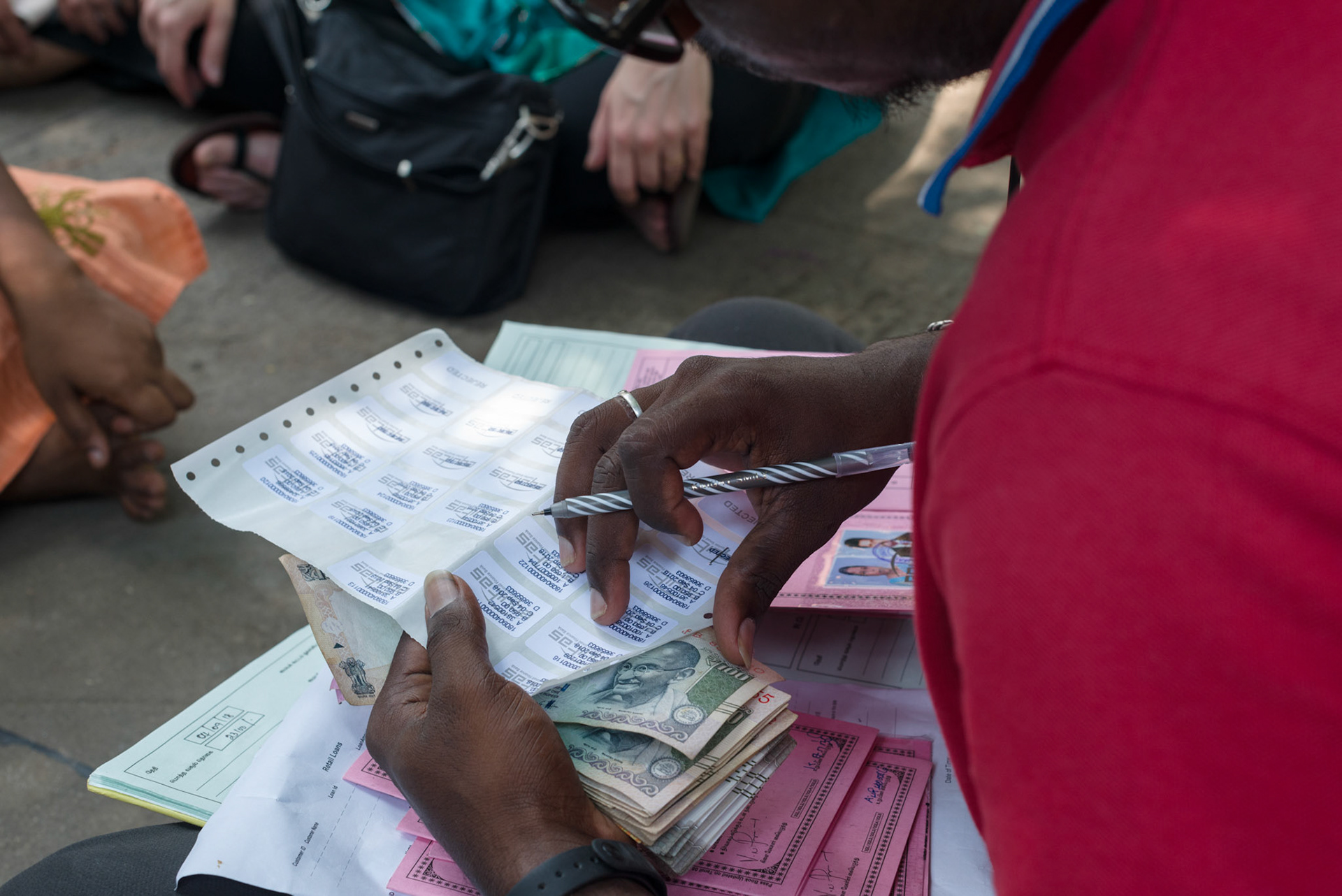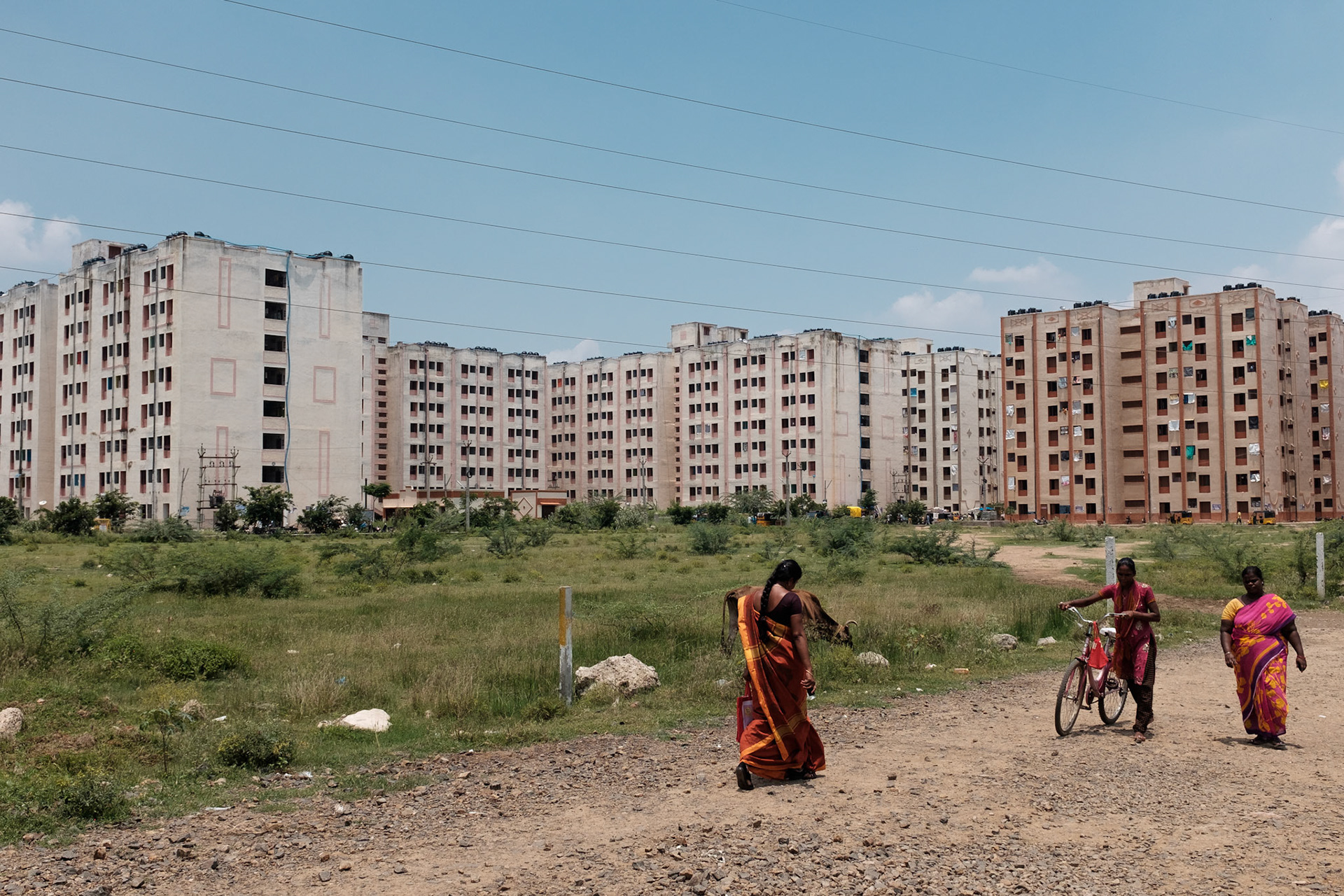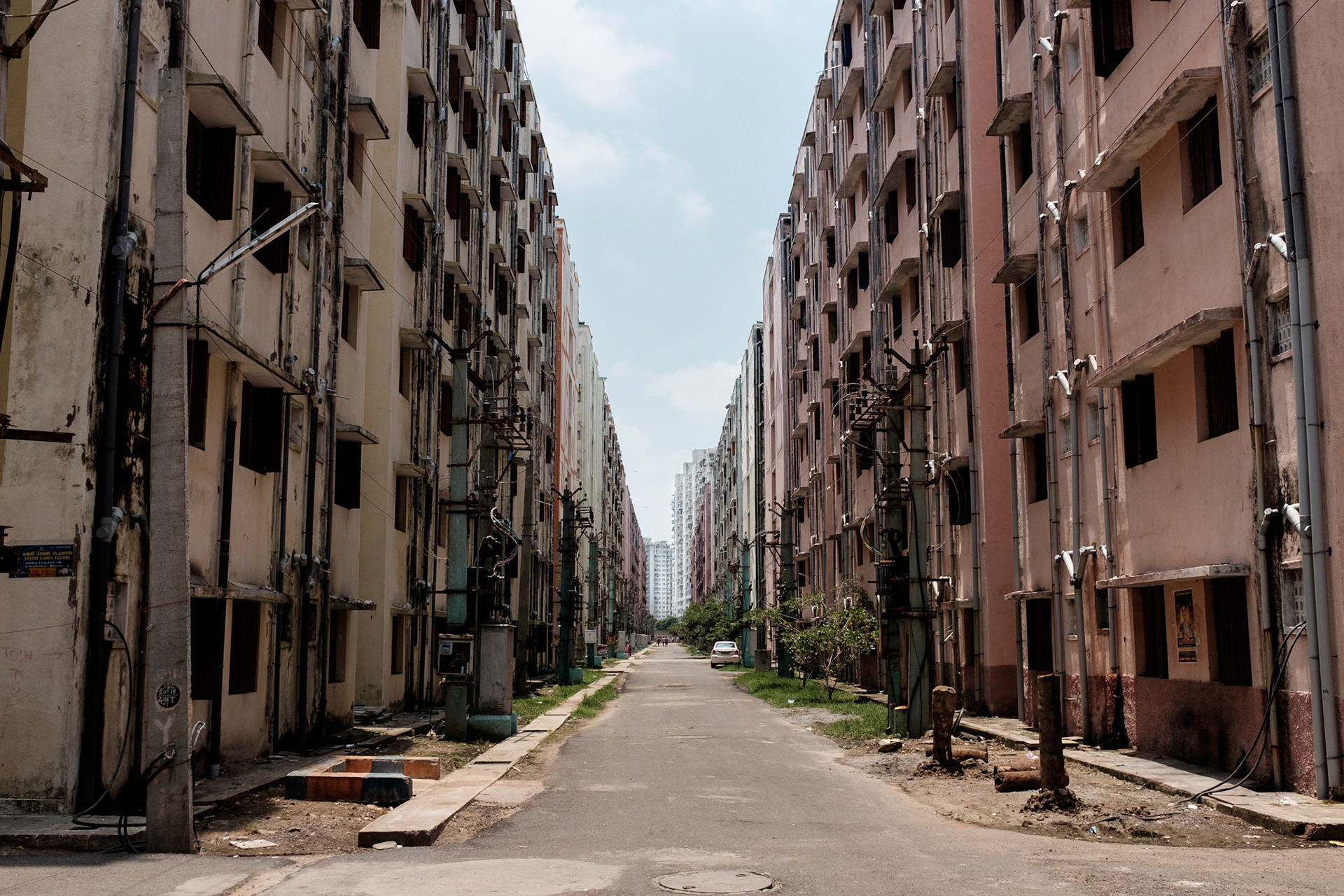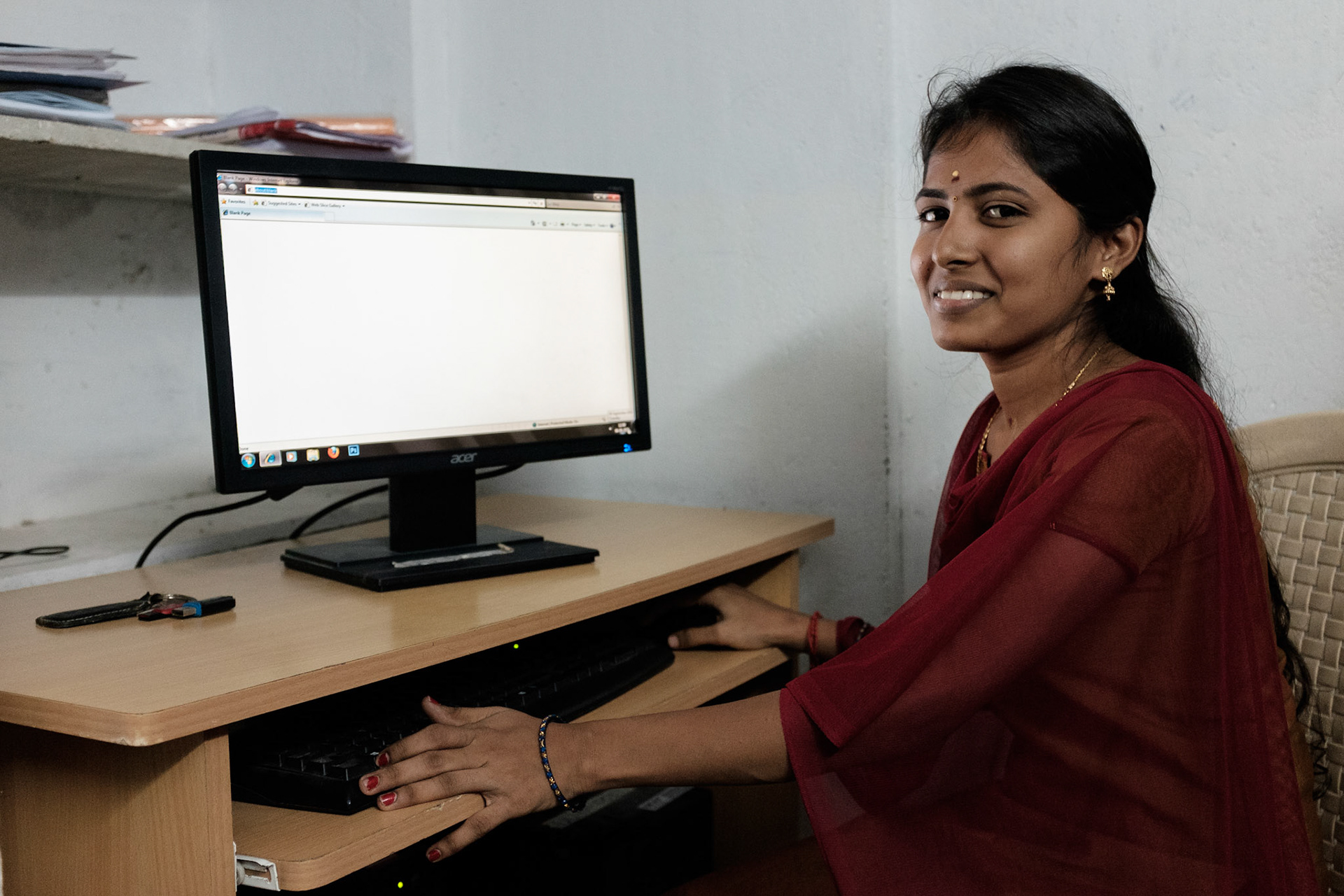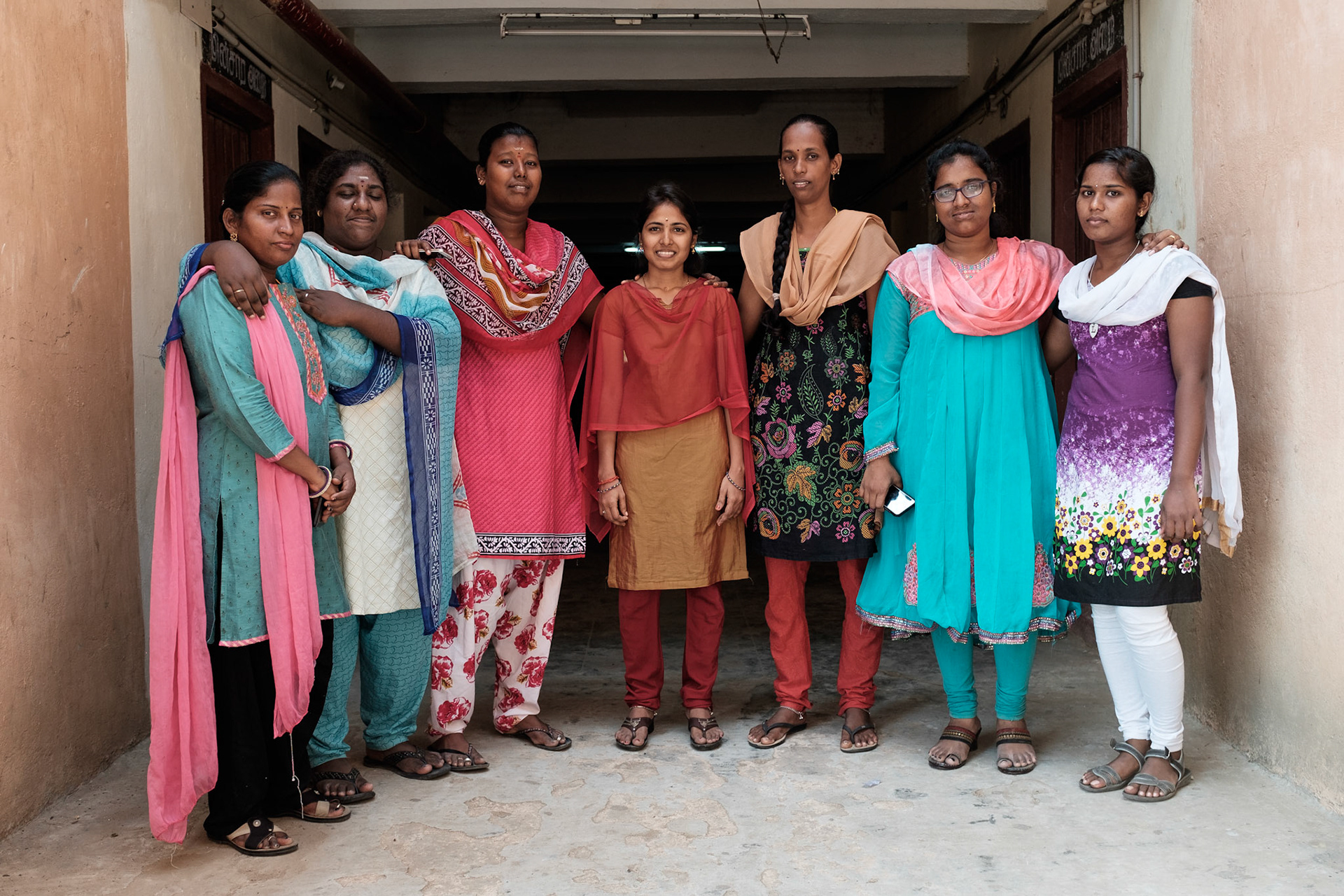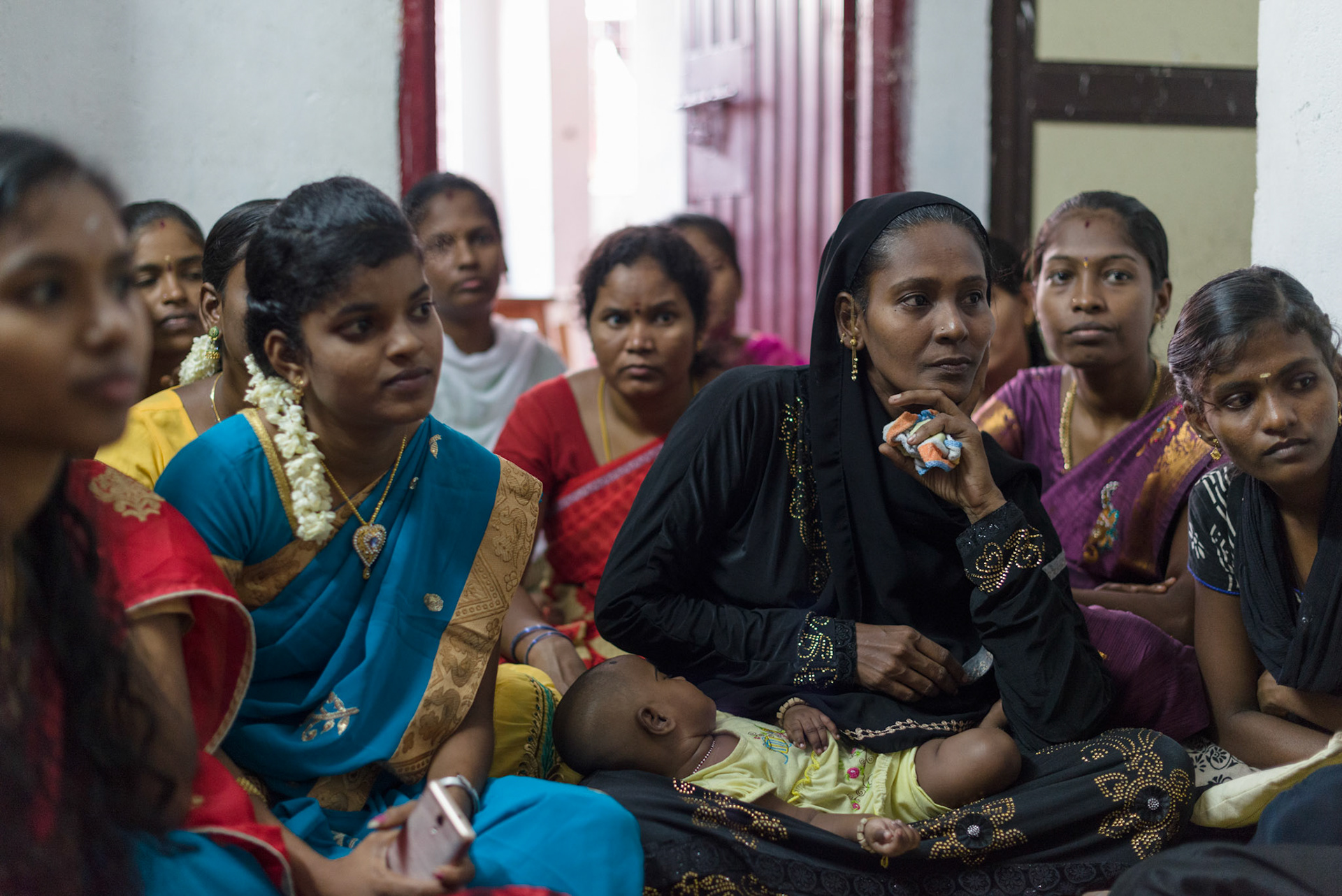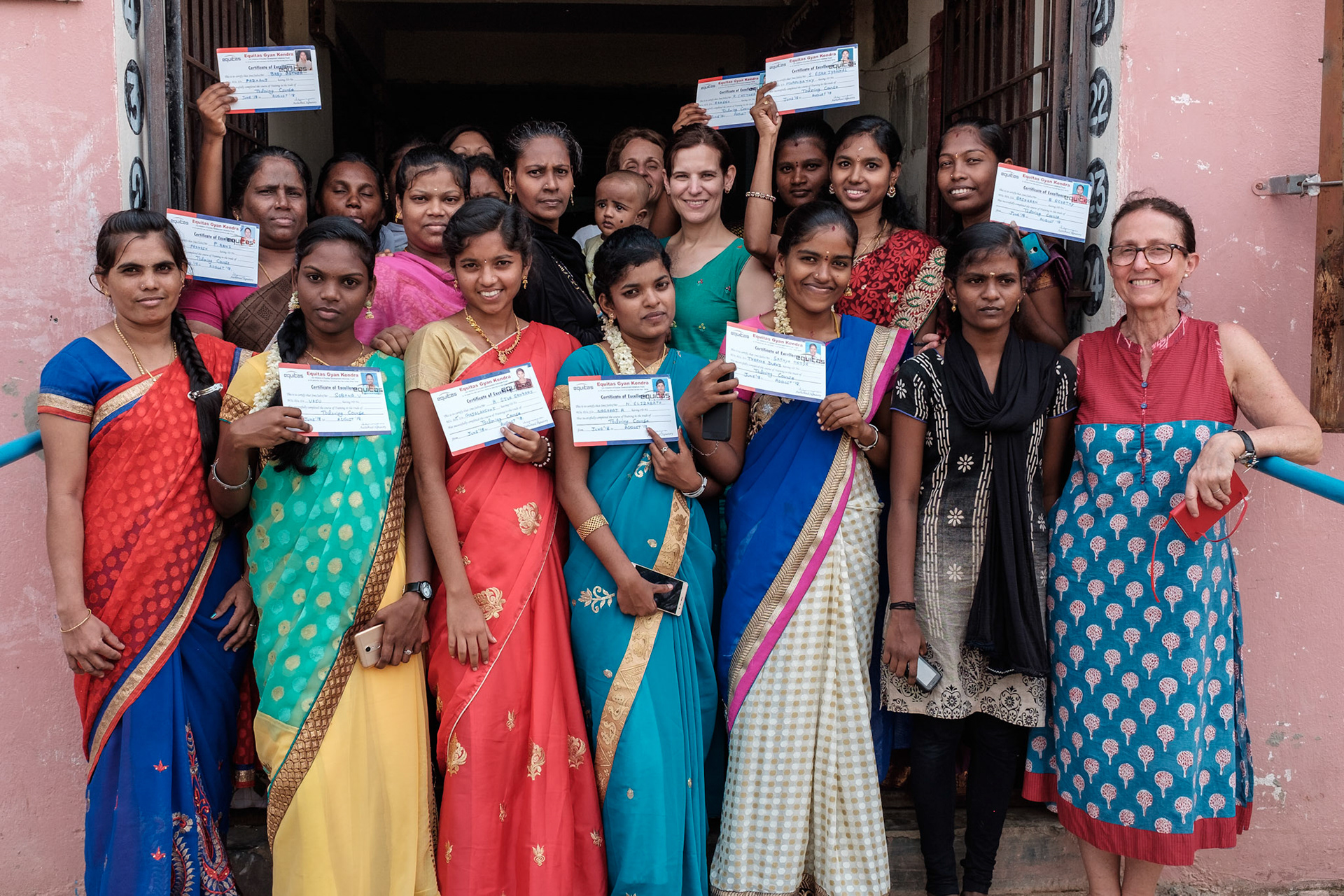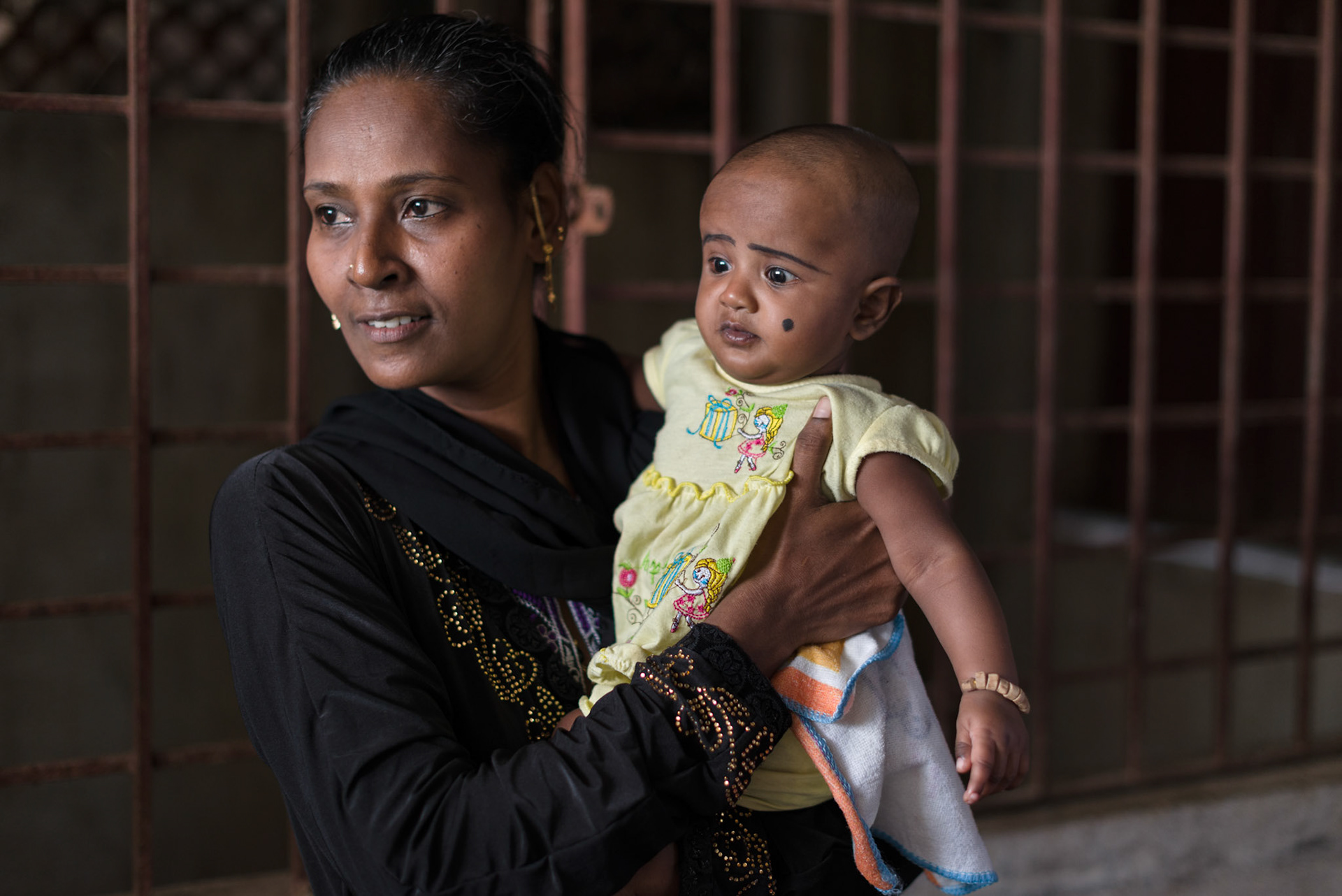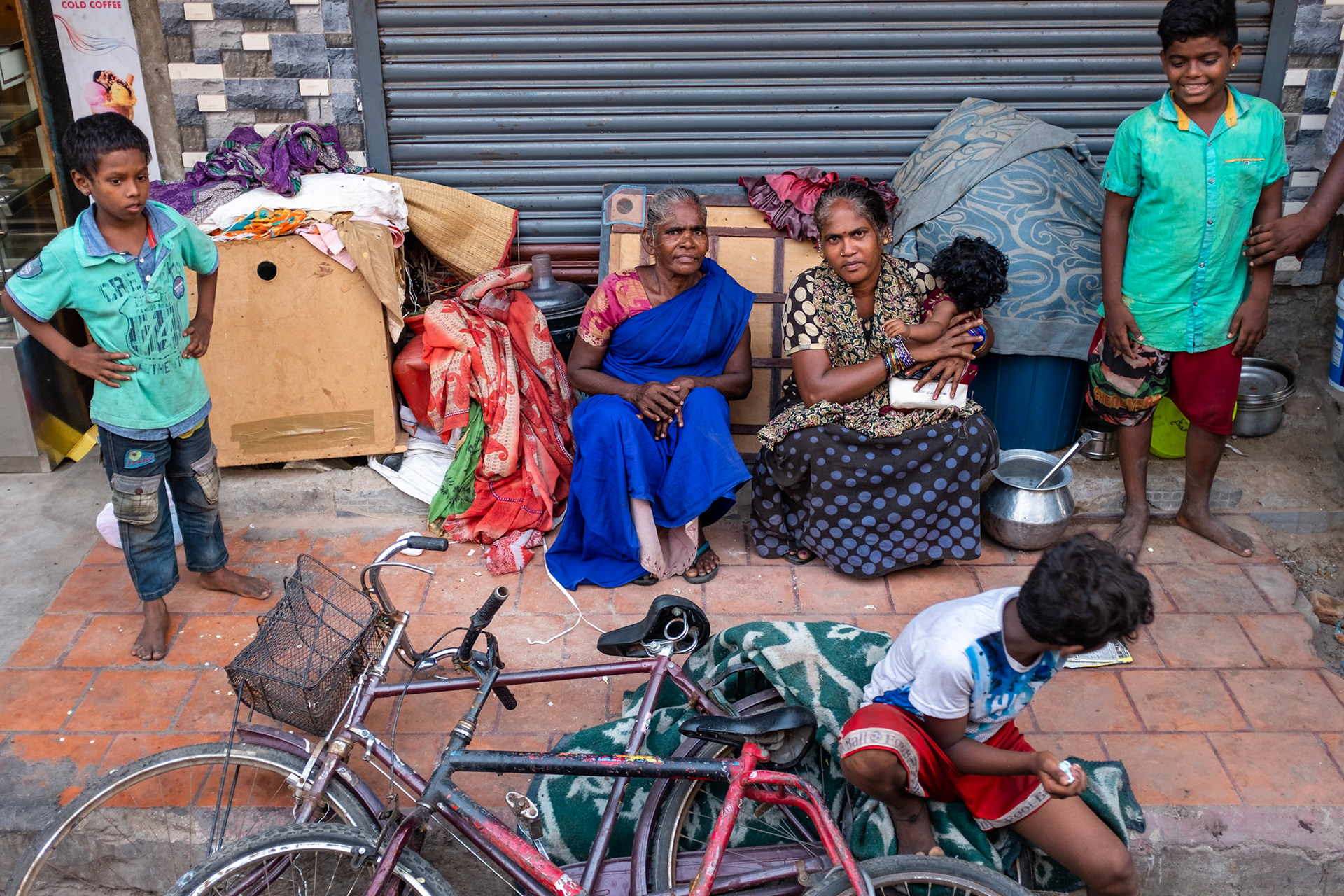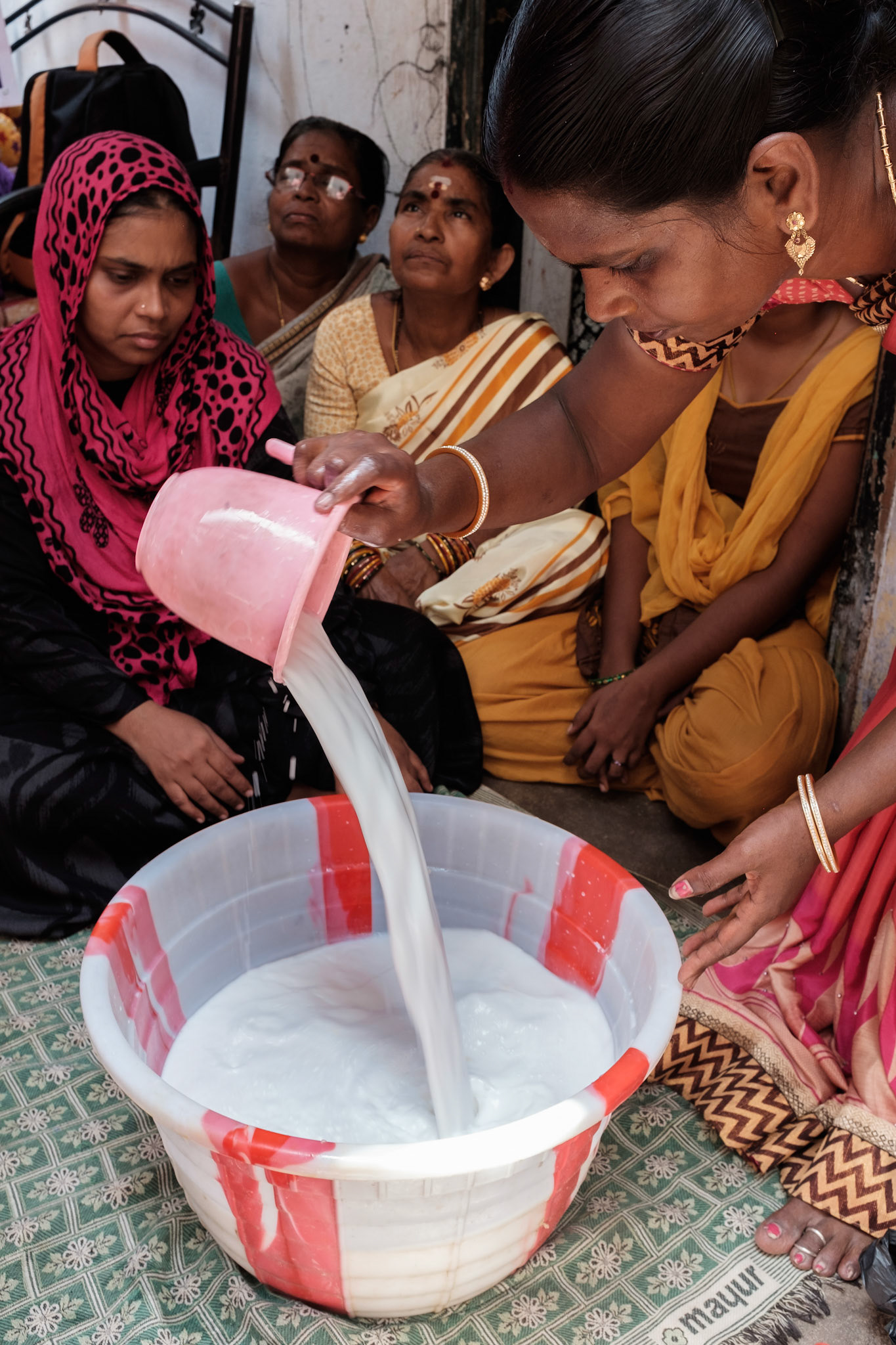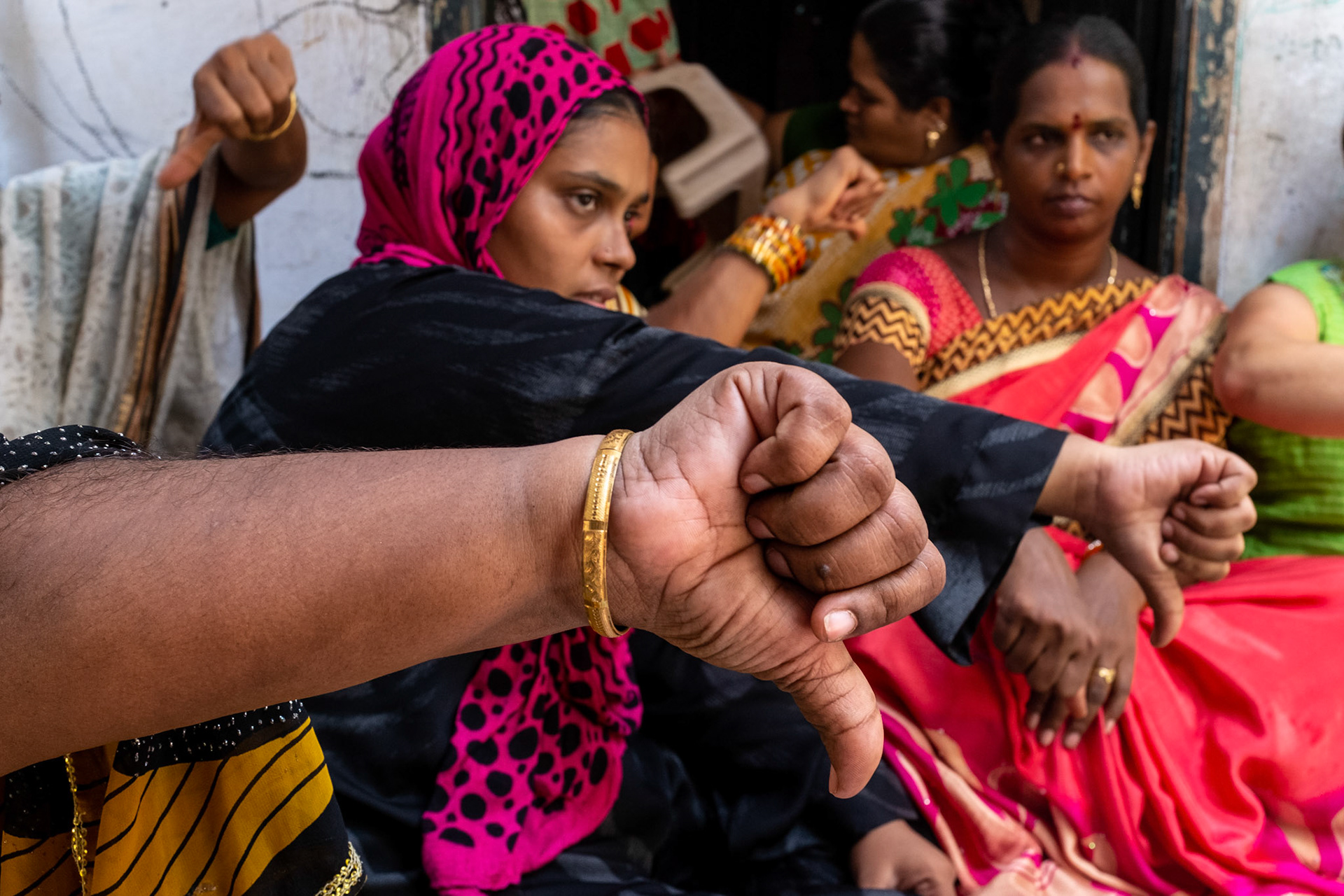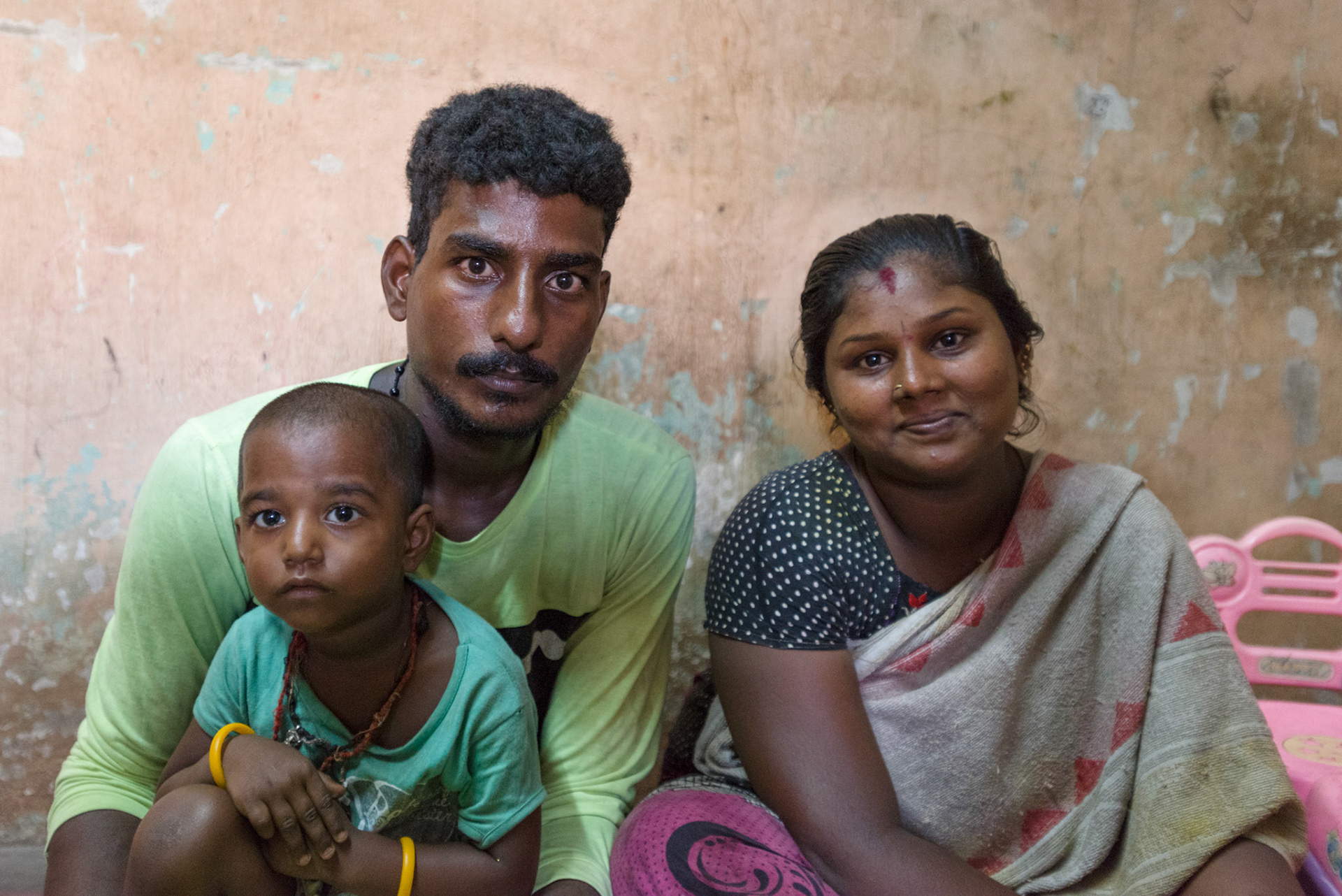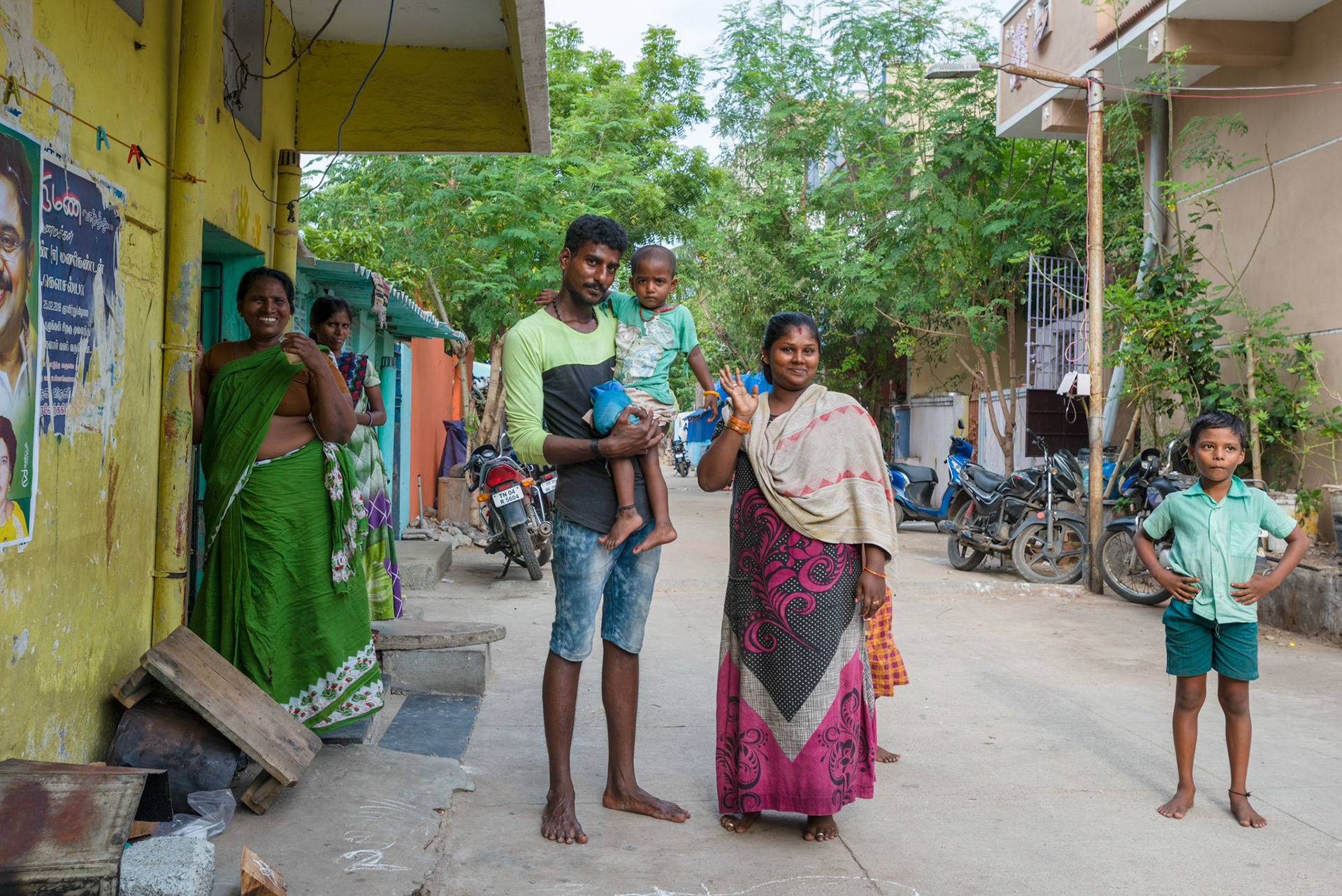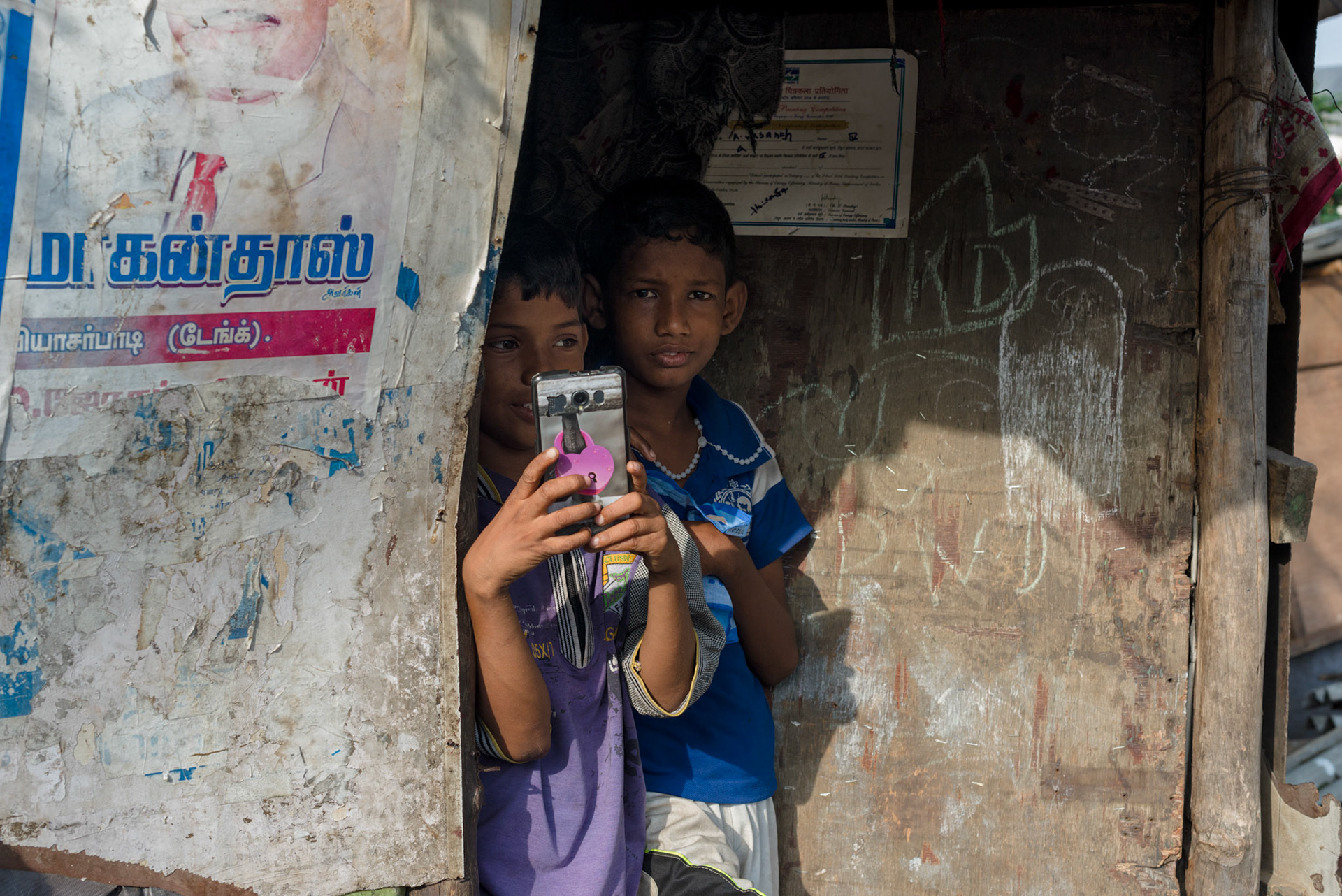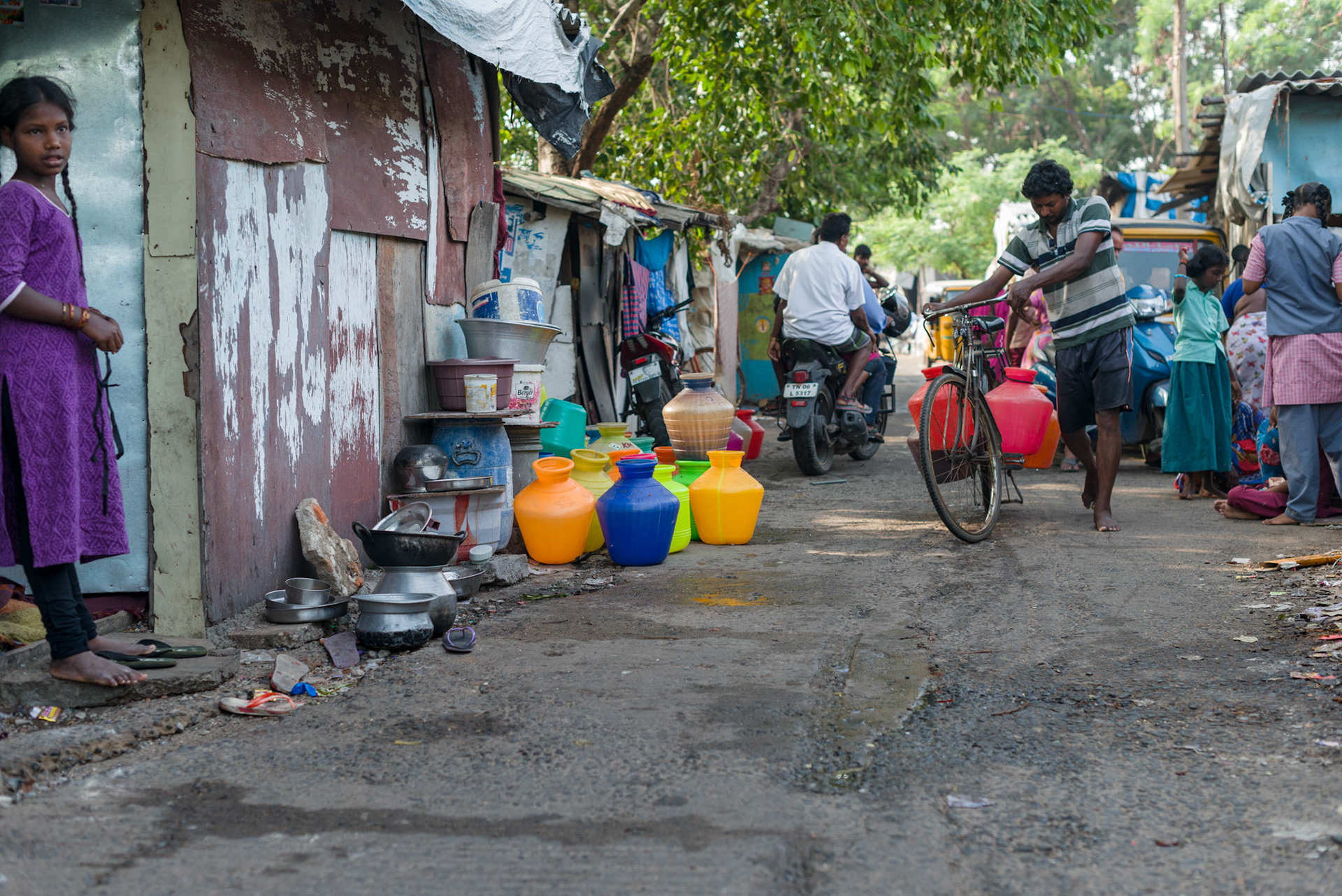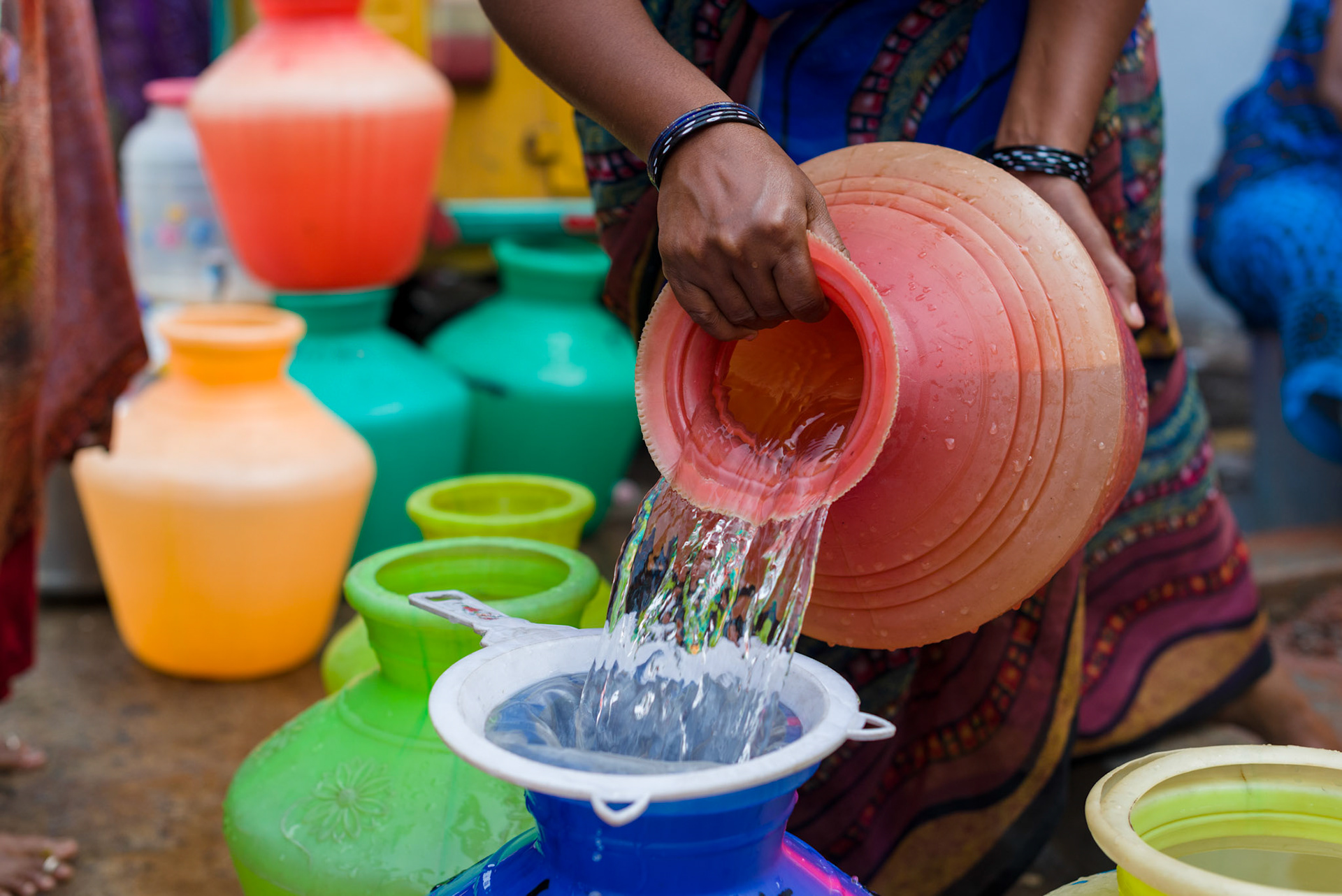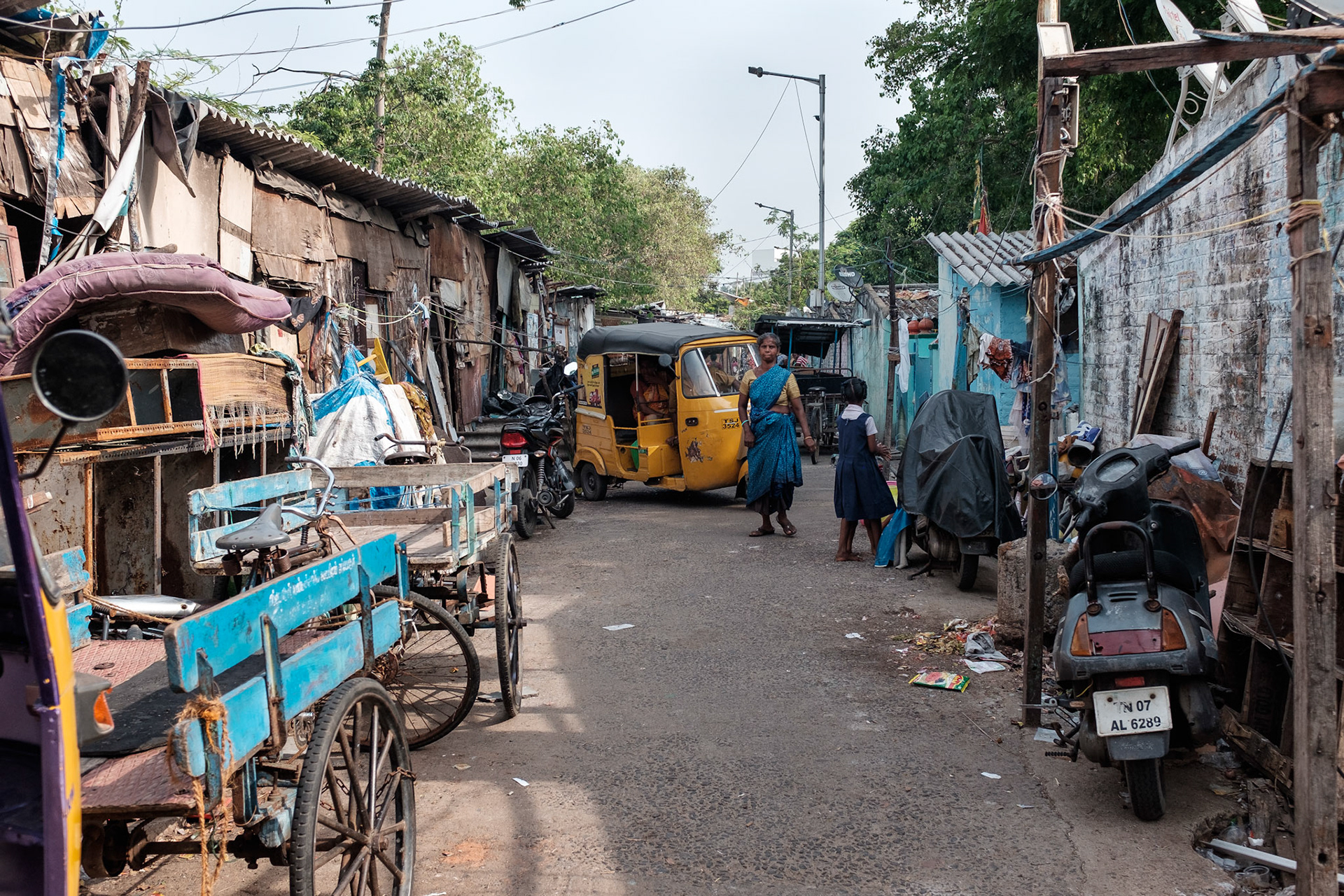
Vasanth, ready for school, writes his parents' and brother's name in my notebook. His parents handed him the notebook when asked for the names.

Bhuvanesh Wari making dosa and idli at her shop. An early entrant into the self-help group, she now has several shops, helped by her daughters.

Rachel, 65, is a long term resident of Pallavan Nagar. She moved here close to 20 years ago when the settlement was formed.
Prior to her husband's death in 1982 she had reasonable life.
Rachel comes from an Anglo-India family and spoke English fluently and clearly; however, as Anglo-Indian she is not fully accepted by the rest of the community.

Venkatesh, 63, is the guardian of the Christian shrine. Although the figures are Roman Catholic, they have been dressed in saris and robes, and adorned similarly to Hindu idols.

Women in a self-help group meet to collect cleaning products distributed by Equitas.

Two women from Equitas self-help groups show the identity cards that they now have.

Deepa, 32, stand at the door of her shack. She works in a nearby cafe.

Bhuvanesh Wari husband,
Muniya, aged 60.
Of similar age, it is Bhuvanesh who is responsible for supporting the family through her business.

Pallavan Nagar slum seen from the railway station across the river.
A slum settlement like this is often a fitst step for pavement dwellers in Chennai. People living here at least have a permanent address and families can register for government services.

The leader of a self-help group distributes the loans for the week.

An Equitas field officer updates the women's savings books with stickers for the loan distribution.

These housing blocks are being built on the fringes of Chennai city. While the hosuing might look spare and isolated, it is nonetheless an improvement over living on a pavement or in a slum.
Within these blocks are small shops, skills training centres, and community actrivities. The housing blocks are being built next to more expensive housing for office and professional workers, creating an economic ecosystem that will provide jobs such as domestic workers, drivers, and other services to their wealthier neighbours.

These housing blocks are being built on the fringes of Chennai city. While the hosuing might look spare and isolated, it is nonetheless an improvement over living on a pavement or in a slum.
Within these blocks are small shops, skills training centres, and community actrivities. The housing blocks are being built next to more expensive housing for office and professional workers, creating an economic ecosystem that will provide jobs such as domestic workers, drivers, and other services to their wealthier neighbours.
The white buildings at the end of this street are middle-income housing blocks.

Deepa, 19, is studying for a BS in Botany but has enrolled in the computer skills course to improve her chances of getting a job. She hopes to get an office job after the six-month course.
Before moving to government supplied permanent accomodation her family lived in an unrecognised slum. Deepa says that living here is better. Her father, a stone mason, can get work in many places and the community here is larger.

Equitas, supported by Accenture, are providing computer skills training in one of the new permanent housing developments.

Women from an Equitas sewing skills course listen at their graduation ceremony.
The women live in a large block of government supplied permanent accomodation. There are enough people here for the courses to be run in the blocks.

Women from an Equitas sewing skills course at their graduation ceremony.
The women live in a large block of government supplied permanent accomodation. There are enough people here for the courses to be run in the blocks.

Noor Jahal,, a graduate of the Equitas sewing skills class, with he baby.

This is the patch of pavement where
Sasikala, 34 (left) lives with her mother Selvakumari, 65 (right), her husband, and her children.
Saskikala was born on this pavement, as were her three children, aged from seven months to five years.
Sasikala works as a cleaner, and goes to her sister's house to wash. Her husband works as a chai-walla.
She says that if she could get a house, she would live there but still work in this area where she has contacts.

Sasikala, 34 with one of her children.
Saskikala was born on this pavement, as were her three children, aged from seven months to five years.
Sasikala works as a cleaner, and goes to her sister's house to wash. Her husband works as a chai-walla.
She says that if she could get a house, she would live there but still work in this area where she has contacts.

Women in a self-help groups are trained in making detergent for cleaning toilets. They will both use and sell what they make.

Women in a self-help group use gesture memnomics to learn health and wellbeing training. Here they say "no to alcohol".

A little over a year ago, Sayagamari lived on the pavement with her husband and duaghter. Since then she has moved to permanent accomodation. She still works with her husband selling drinking water, but now she has a secure place to live on a good street. She says she is safer, healthier, and happier.

Sayagamari, with her husban Kuppuswamy, and daughter wave ouy side their apartment.
A little over a year ago, Sayagamari lived on the pavement with her husband and duaghter. Since then she has moved to permanent accomodation. She still works with her husband selling drinking water, but now she has a secure place to live on a good street. She is safer, healthier, and happier.g

Vasanth photographs the photographer from his shack in Pallavan Nagar.

A street in Pallavan Nagar. The water points only run from 5AM to 9AM, although the water pressure is not strong after 8AM, even for the hand-pumped points. Pallavan Nagar residents need to secure their day's water before it runs out.
The water comes from the Chennai water supply - bore water here is salty - and a water point has been provided for each four lanes in Pallavan Nagar.

The water points only run from 5AM to 9AM, although the water pressure is not strong after 8AM, even for the hand-pumped points. Pallavan Nagar residents need to secure their day's water before it runs out.
The water comes from the Chennai water supply - bore water here is salty - and a water point has been provided for each four lanes in Pallavan Nagar

The streets in Pallavan are tight, but still serviced by motorbike taxis and tuk tuks. The settlement has electricity and some water supply.
